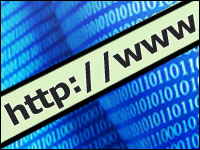
It is happening right now. Media executives, mostly in denial, are shunning the subject. Smart ones are coming up with well-branded 24/7 Web-based news sites and general broadcasts.
This is a brand-new revolution, and the entire model is about to be changed.
Here are the issues:
Device Explosion
The receptacles to receive the conventional TV feed are no longer just the bulky tubes, but rather handheld devices or the hundreds of gadgets and screens lying around any office these days. The Norman Rockwellian image of a family sitting around radio or in later years glued to the TV is now replaced by far too many kinds of devices within an arm’s reach, ready to display all kinds of action in living color.
Tubes have lost their exclusive, firmly mounted position and are now on the road, nicely miniaturized and fully mobile in all shapes and sizes. Feeding the mobile consumer is now the issue, and not the centrality of the living room.
Gizmo land.
Content Implosion
The contents are getting poorer and the news is no longer news; it is all turning into junk. From something that was once thoroughly researched, selectively gathered, organized and broadcast on an anticipated timeframe, it’s now just a stream, spewing all the garbage of the planet, all the time, just like one open pipe of sewage.
Like sitting by a newswire in an old newsroom of a major newspaper, the news is now continuous and so fast that its impact and meaning has altered. And you get the same information repeated a thousand times.
Meanwhile, reality shows and mind-numbing entertainment shows are flooding cable and later will head to broadband to land on the Web.
Desperate hours.
Character Degeneration
The fun is gone — there once was a time when there were carefully crafted TV commercials, introduction of real new thoughts, discussions and great new innovations. Today, it’s all about one disaster after another, one attack after another, and one accident after another, and in between there’s a long and drawn out analysis of The Degenerates of the Day.
Branding and advertising via the television medium is at a low point. What was once the powerhouse is on the verge of a power-failure and heading for a blackout. Internet advertising is booming worldwide.
Three Challenges for Current Media
If every Web site were to become a TV broadcast system of some type with some contents and quality what will it do to the handful of TV players around the globe? If this dilution were to continuously reduce the ad dollars, then how will they support the quality? If the public’s disdain for media were to grow further into less and less reliability, then what will be the value proposition? Will TV fade into a free Web service, the likes of e-mail, or will it become just a basic extension of a wireless society?
There are two sides to the coin: One, the role of TV as a medium to influence public policy and keep the populace in line, and the other, to entertain them and collect money. The challenges are to see how these roles will change when wrapped up by the Web.
While Western economies are entangled in overly subscribed channels, Asia is experiencing a TV channel boom and may even possibly bypass this phase of TV rejection by simply adopting a Web delivery model much faster then the G8 countries.
There will always be TV, no doubt, but the real mass market will be at the other screen, the one called the computer terminal and now being called the electronic device.
Awaiting the Transformation
The branding of our society was very well served with the TV medium. Now the ripples of e-commerce have shaken the foundation of all the elite brands and ideas. Now, in the age of abundance, there is hardly anything unique enough to fight for. Marketers have exhausted themselves with endless attempts to push their image and branding via current mediums, and now all await a major shift somewhere.
The future of corporate image and cyber branding is ever so complex as we are fully entrenched into a name-economy, where economical powers are being measured by the aggressive brand name power of one country over the other. It was the TV medium that set the spark in branding, and now Internet has started the fire.
As long as the flow of information shifts from the old model of “from one to many” to “from many to one,” the current TV and print model will crumble. And it will keep on sliding, fast.
In the meanwhile, the recipient, a solo warrior on the Web, will receive a highly customized, well-programmed segment based on specific needs and interests addressed directly to his or her name will arrive via Internet.
Free.
Naseem Javed, author of Naming for Power and alsoDomain Wars, is recognized as a world authority on global nameidentities and domain issues. Javed founded ABC Namebank, aconsultancy he established a quarter century ago, and conducts executiveworkshops on image and name identity issues. Contact him at [email protected].





















































Social Media
See all Social Media